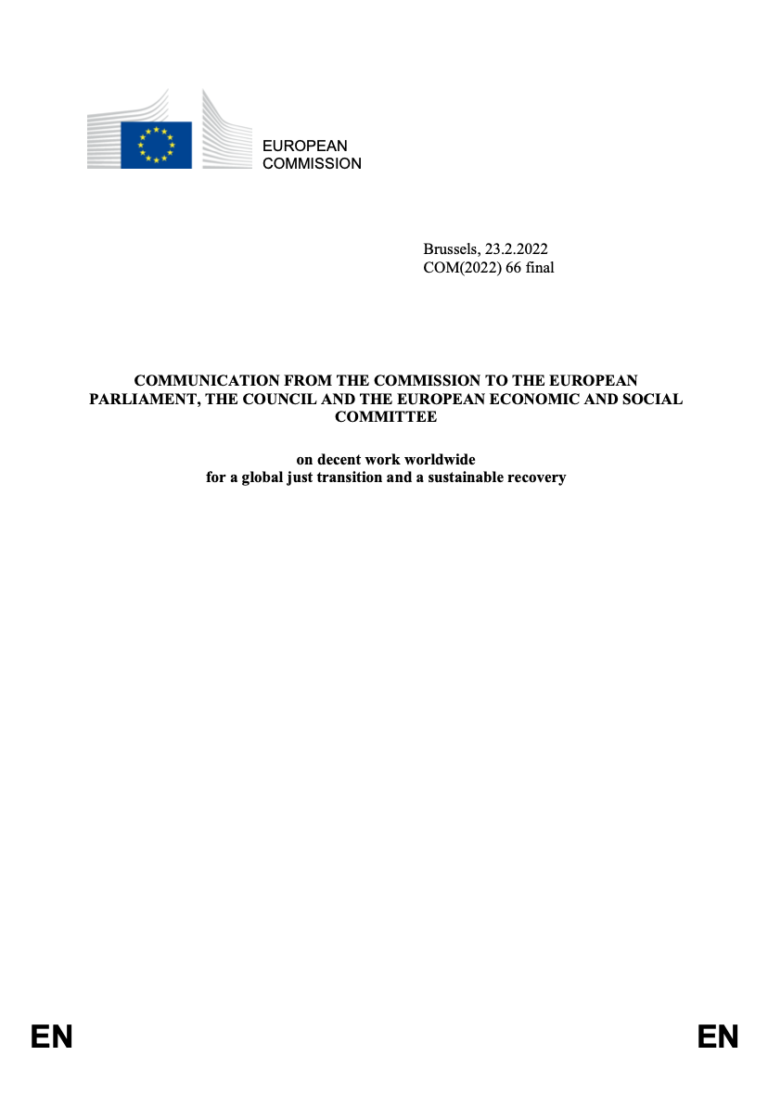According to the latest global estimates, 160 million children worldwide are in child labour. That is one in ten children in the world, and their number is growing. Nearly half of these children are performing hazardous work. At the same time, 25 million people worldwide were in a situation of forced labour. These figures act as a stark reminder that decent work is still not a reality for hundreds of millions of people worldwide, despite a clear commitment by the international community in the United Nations Sustainable Development Goals.
In parallel, global megatrends are rapidly transforming the world of work. Technological advances, the environmental and climate crisis, demographic change and globalisation are drivers of this development. These transformations have the potential to generate economic growth and create new job opportunities, but in some instances they can also contribute to a lowering of labour standards.
Promoting decent work is increasingly coming into focus in the international context, particularly through the work of the International Labour Organization (ILO), the United Nations (UN) and the Organisation for Economic Co-operation and Development (OECD), but also within the G7 and G20 groups of nations. International commitments and guidance reflect rising concerns that globalisation is not always happening in a sustainable manner and address the role of business corporations in this regard.

